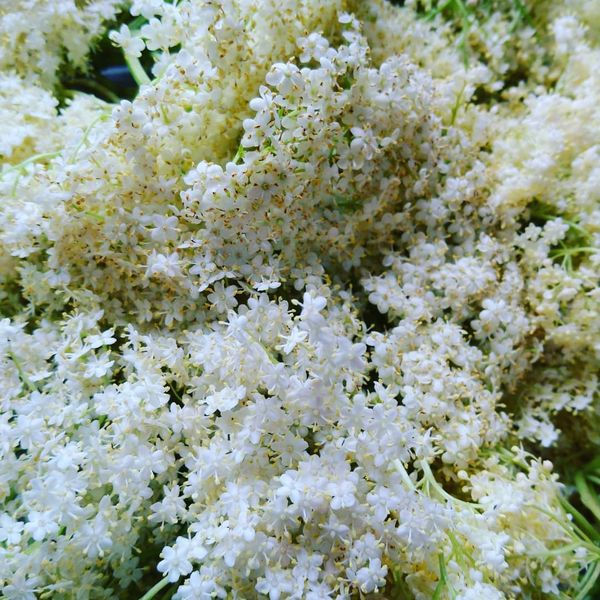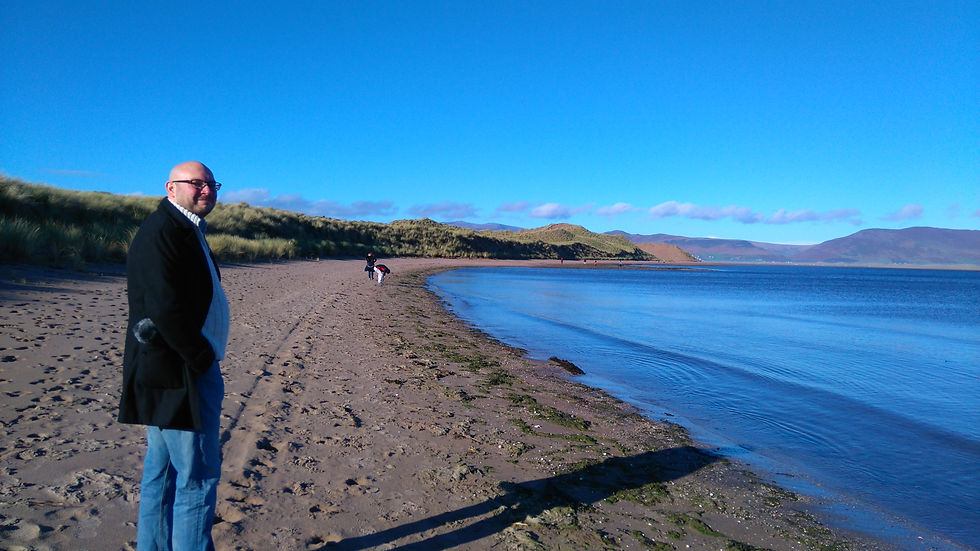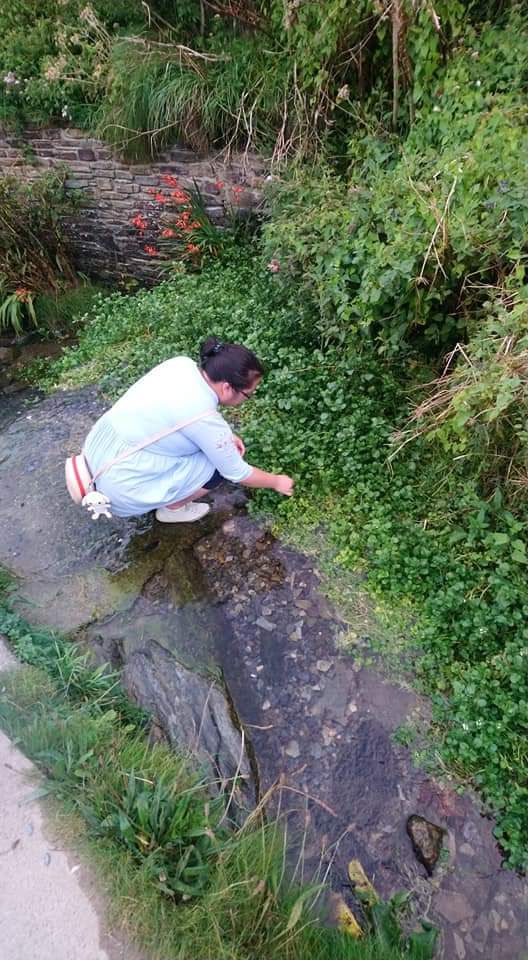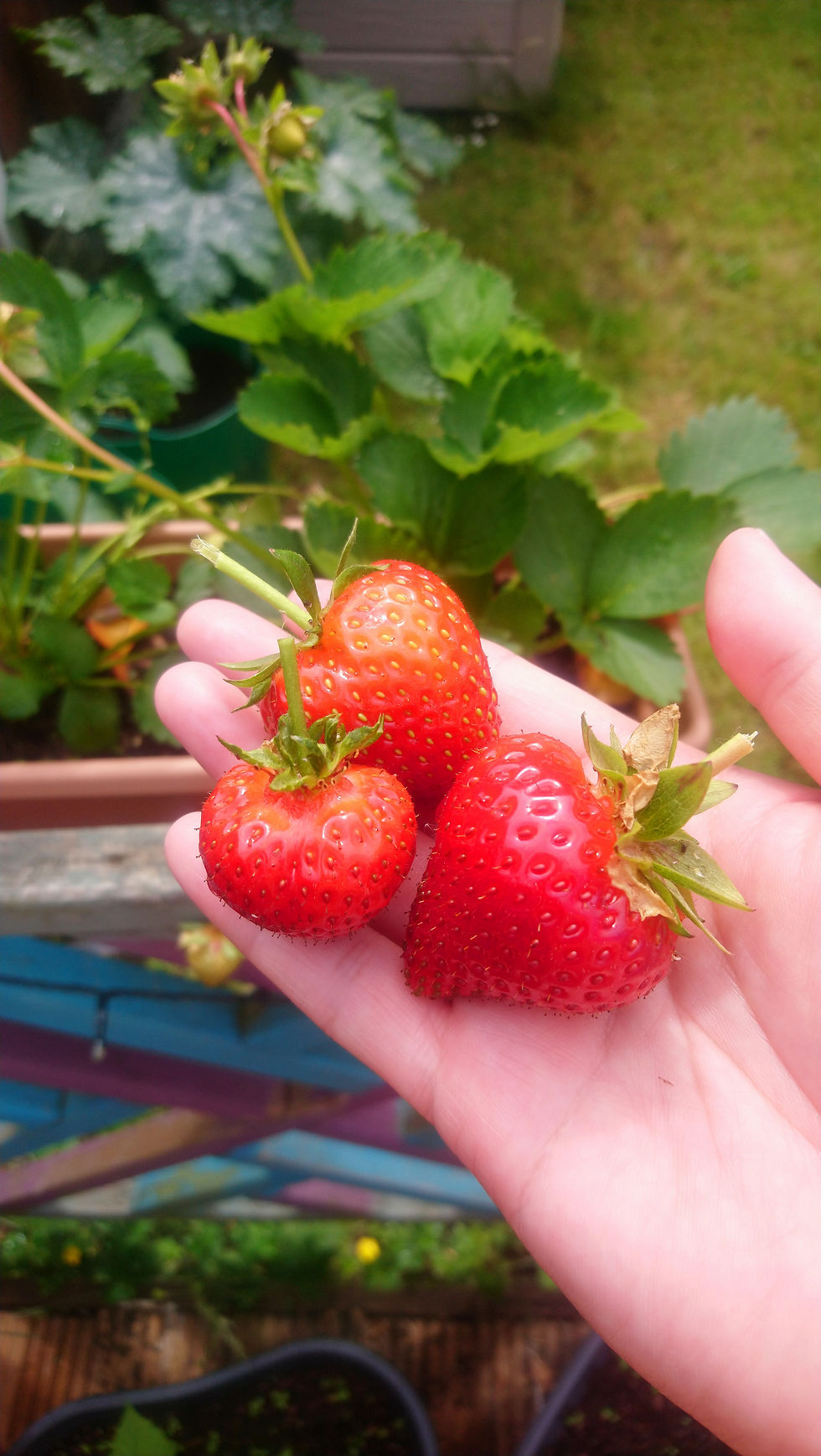Who doesn’t like free food?! Foraging has become a beloved hobby of mine. I already loved going for walks and cycles but it’s added a foodie element to our nature excursions. Hubby booked us for a foraging walk/talk a few years back as a birthday present and now I can’t stop noticing things when we are out and about. At the moment, it’s Elderflower season and each year, I go out and pick baskets of Elderflowers to make cordial. This year, I'm going to try making Elderflower Turkish delight too.

A big heap of Elderflowers
I make enough cordial to freeze in ice-cube trays and bottles to last me most of the year. It’s a fleeting thing and you have to make sure that you do not over pick any one bush or tree so that there are plenty of flowers left to turn into berries. These berries can then be used to make Elderberry wine, and they also feed wildlife through the Autumn. This homemade cordial is so easy to make, delicious and infinitely superior to anything shop bought. It tastes of pure sunshine. Use the frozen cubes with gin and tonic to make an instantly refreshing, summery cocktail. I also use a dash of it in homemade lemonade to add a floral note. The recipe I use is listed below:
Elderflower cordial

-25 heads of elderflowers
-1.3kg sugar
-3 unwaxed lemons
-2 tbsp citric acid
-1.2 litres water
1. Put the sugar into a large non-reactive pan (I use a big jam pan).
2. Peel the zest from the lemons in large strips and add to the sugar, squeeze the juice and add this to the pan along with the lemon pieces.
3. Pour over the freshly boiled water and stir well to dissolve the sugar.
4. Stir in the citric acid. Allow the mixture to cool for 20 mins while you prepare the Elderflowers.
5. Swish the flower heads in some water to remove any insects and debris. Shake well to dry them.
6. Snip off any of the larger stems, leaving mostly the flowers, some stalks are fine. You’ll end up with a big fragrant pile of flowers.
7. Stir the flowers into the slightly cooled sugar syrup. Cover well with clingfilm and leave in a cool dark place for up to 2 days.
8. Sterilise some bottles or jars and allow to cool.
9. Strain the Elderflower cordial through a fine sieve lined with muslin or cheesecloth. Pour into the sterilised bottles and keep in the fridge. You can also freeze the cordial in ice cube trays to make instant cold drinks. I keep the frozen cubes in freezer bags to put in gin and tonics and lemonade. If you want to freeze whole bottles, use plastic bottles and only fill them 2/3 full to allow for expansion.
This recipe makes quite a concentrated cordial, dilute it to your own taste but I dilute it 1 part cordial to 6 parts water.
My love of foraging probably stems from trips to the sea-side as a child. Every summer we would make trips out to Rossbeigh beach. Most often just with my Mom and brothers but sometimes with my Dad, Aunts, Grandparents and childhood friends in tow. It was a favourite family day out and it is still one of my happy places; one of my favourite places in the whole world. It holds very many happy memories. It was a fair drive from our home town and a world away from British seaside resorts with no arcades or amusements. Just a sandy beach and sand dunes for miles. We loved playing in the rockpools with nets and buckets, catching tiny shrimps and fish and trying to avoid being nipped by the very feisty crabs. We also gathered shellfish, there were plentiful mussels, cockles, periwinkles and sometimes oysters too. I remember walking the mudflats with my Popo and her teaching me how to feel out the cockles hiding under the surface of the sand with my toes. My mom even caught a flat fish once (we think it was some sort of sole) by slowly wafting it towards the shore and nabbing it in a bucket. I remember the first time we found oysters. On that beach they are very difficult to spot, looking much like rocks amongst the opened shells and pebbles and my Aunt refused to leave until she’d managed to find one too. Mom would always let us stop for an ice-cream on the drive home. A creamy 99 that we’d have to eat quickly before it melted and dripped everywhere, then we’d all fall asleep in the car, worn out by the running around and sea air.
We’d often bring a picnic or a barbeque and have a feast on the beach. Yes, there were the normal sausages and sandwiches but we’d also treats from my parent’s restaurant. The most delicious fish I’ve ever eaten was Turbot cooked on a little BBQ on that beach. My mom had wrapped chunky individual steaks of Turbot in foil at home and seasoned them really simply with slices of lemon, salt and pepper. We ate it with our fingers and it was divine. Even our neighbour’s little boy, who supposedly hated fish, loved it and asked for more and my Grandmother, who is hyper-critical of everything my mother does, gobbled it up too. Dad would prepare skewers of marinated chicken or pork and we’d sometimes thread shrimps we’d caught onto skewers and BBQ them too.

Taking Hubby to Rossbeigh beach for a walk for the first time Nov 2015
The majority of the shellfish we gathered would normally be brought home for cleaning and purging of sand before eating. My mom’s garlic mussels on the half shell are a thing of absolute beauty! More often than not, she and Dad would steam or boil the catch and serve it with soy sauce and chilli sauce to dip the shellfish into. We kids particularly loved using a pin to eat the periwinkles. I think we did enjoy gathering slightly more than eating them though. We had pretty idyllic childhood summers in Ireland. Living in a small town, we were allowed to roam free much of the time. At the bottom of our street were fields to run and play hide and seek in, woodlands to climb trees and a river for paddling in. We would pick blackberries and eat them as they were, or mash them with a hefty sprinkle of sugar to make a very rudimentary jam and eat it with bread and butter. We tried to fish in the river (with little success) and we picked cobnuts, smashing them open with rocks and eating the sweet milky kernels. Mom grew potatoes, beans and herbs in the garden and we would be sent to pick what she needed for making dinner.
Here in Chester, we’re miles from the sea and I am a lot less confident of how clean the waters are for foraging seafood, as compared to the great wide expanse of the Atlantic in Kerry. Instead, we visit the seaside for walks. I find being by the seaside calming, even on and perhaps especially on, blustery cold days. The sight, smell and sound of the sea is comforting and refreshing to me. The total sensory overload switches off my sometimes over active brain and brings me a sense of peace. My husband feigns despair because I love the water and no matter how cold it is, I’m sure to end up in it. I still always want to stop for an ice-cream on the way home and I still always fall asleep in the car, worn out by the sea air. I’m now obsessed with mushroom hunting and foraging wild greens and fruit. I have local spots for gathering St George’s mushrooms in April and May. I have found field mushrooms, Chicken of the Woods (Laetiporus sulphureus) and Wood ear (Auricularia auricula-judae) mushrooms. I gather Hedge garlic/Jack in the hedge/Garlic Mustard (Alliara petiolate) and Wild garlic to use in pasta sauces and as fillings for ravioli and tortellini. In the Spring I pick oak leaves to make Oakleaf wine.

Picking Watercress in Tintagel
At the end of summer, I pick blackberries to flavour whiskey and wild cherries to flavour brandy. In the Autumn, there’s Sloes and Damsons to infuse in gin and vodka. The results of my labours are given as Christmas presents to friends and family. My own garden provides me with potatoes, tomatoes, strawberries, raspberries, peppers, courgettes, herbs, chillies and salad leaves. I have very optimistically planted a chestnut tree, fig tree, apple tree and peach tree (all of which are yet to bear fruit). I find it difficult to explain why foraging, picking and growing my own food makes me so happy. I have always liked understanding where my food has come from and knowing how it was grown. Cooking my own produce from scratch gives me a huge sense of achievement and satisfaction. I think it also helps me to mark the changing of the seasons and makes me feel more in tune with nature.

First homegrown strawberries of the season
Here are some of my recommendations for foraging resources and recipes:
-Wildfood UK are fabulous. We went on a foraging walk/talk with them and it was excellent. They also have very detailed and comprehensive guides on their website including videos and recipes. https://www.wildfooduk.com/
-Food For Free by Richard Mabey. It’s a classic foragers book, pretty iconic and detailed. The newer editions have photos to aid ID too.
-The Forager’s Kitchen by Fiona Bird is chock full of mouth-watering recipes and ideas. I love flicking through and drooling over the photos.
-How to Make your own Drinks by Susy Atkins. This is my drinks making bible. Every recipe I’ve tried from this book works out beautifully.
What are your favourite foods to forage? Where are your happy places? I‘d love to know!
Commentaires